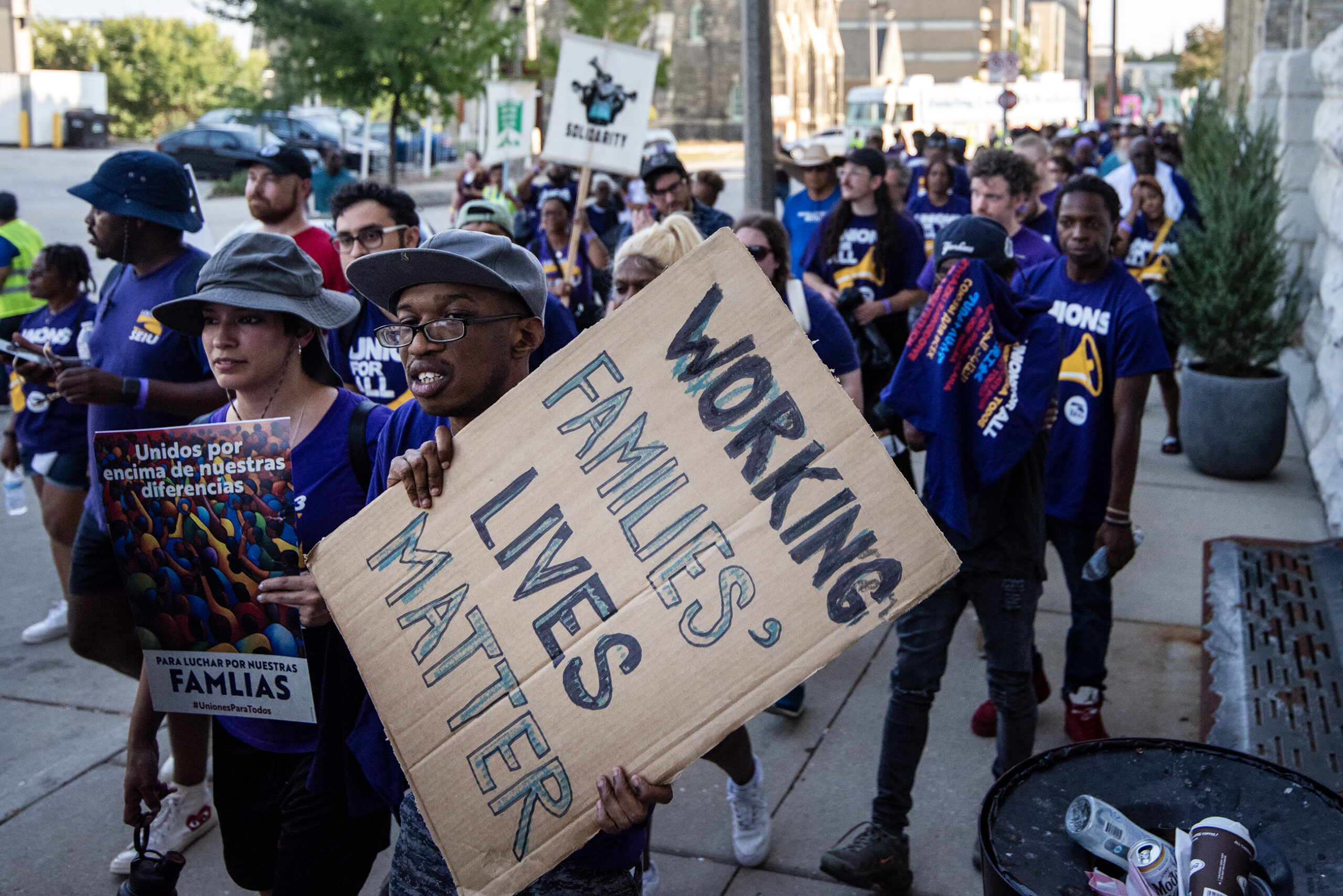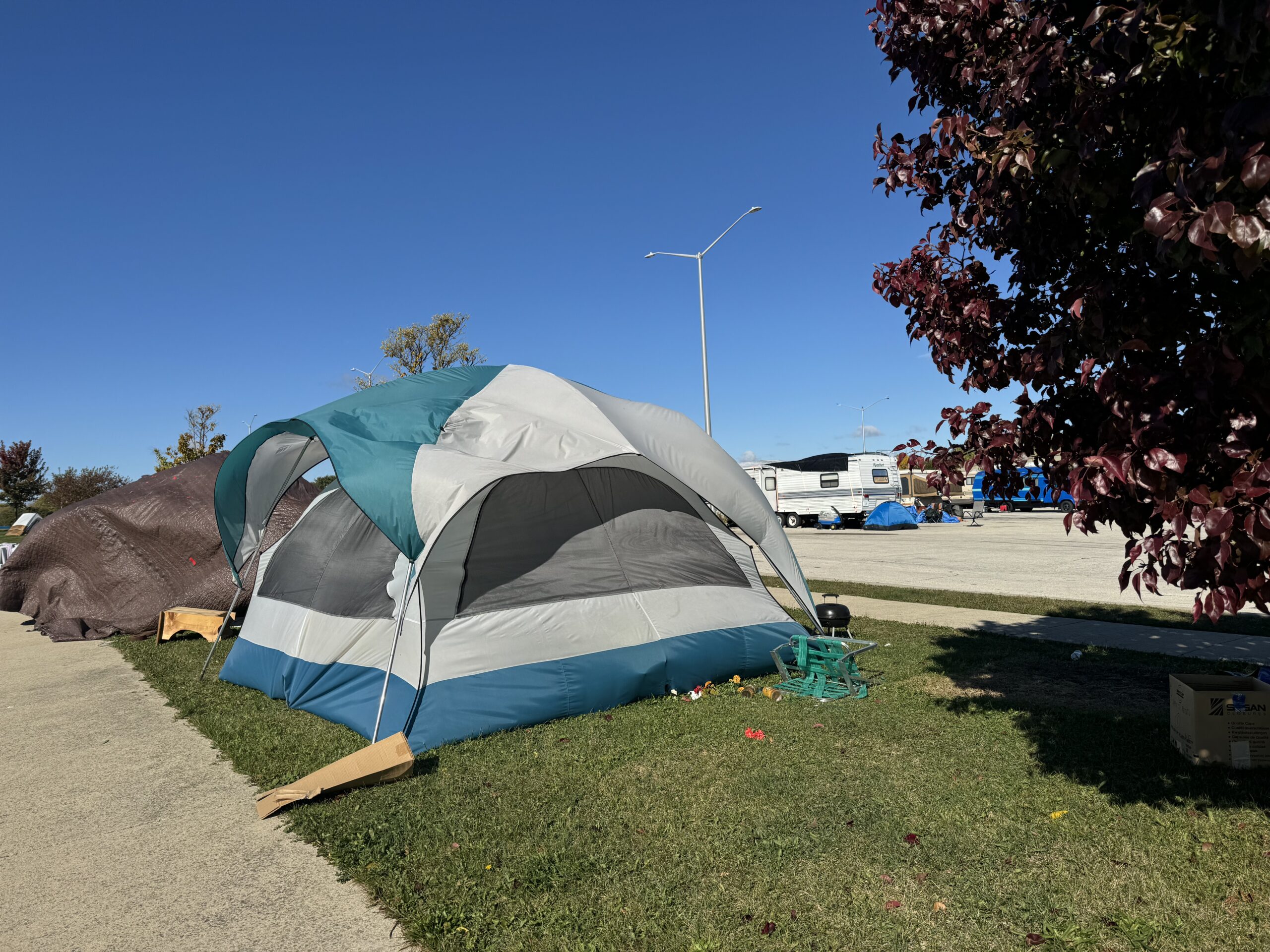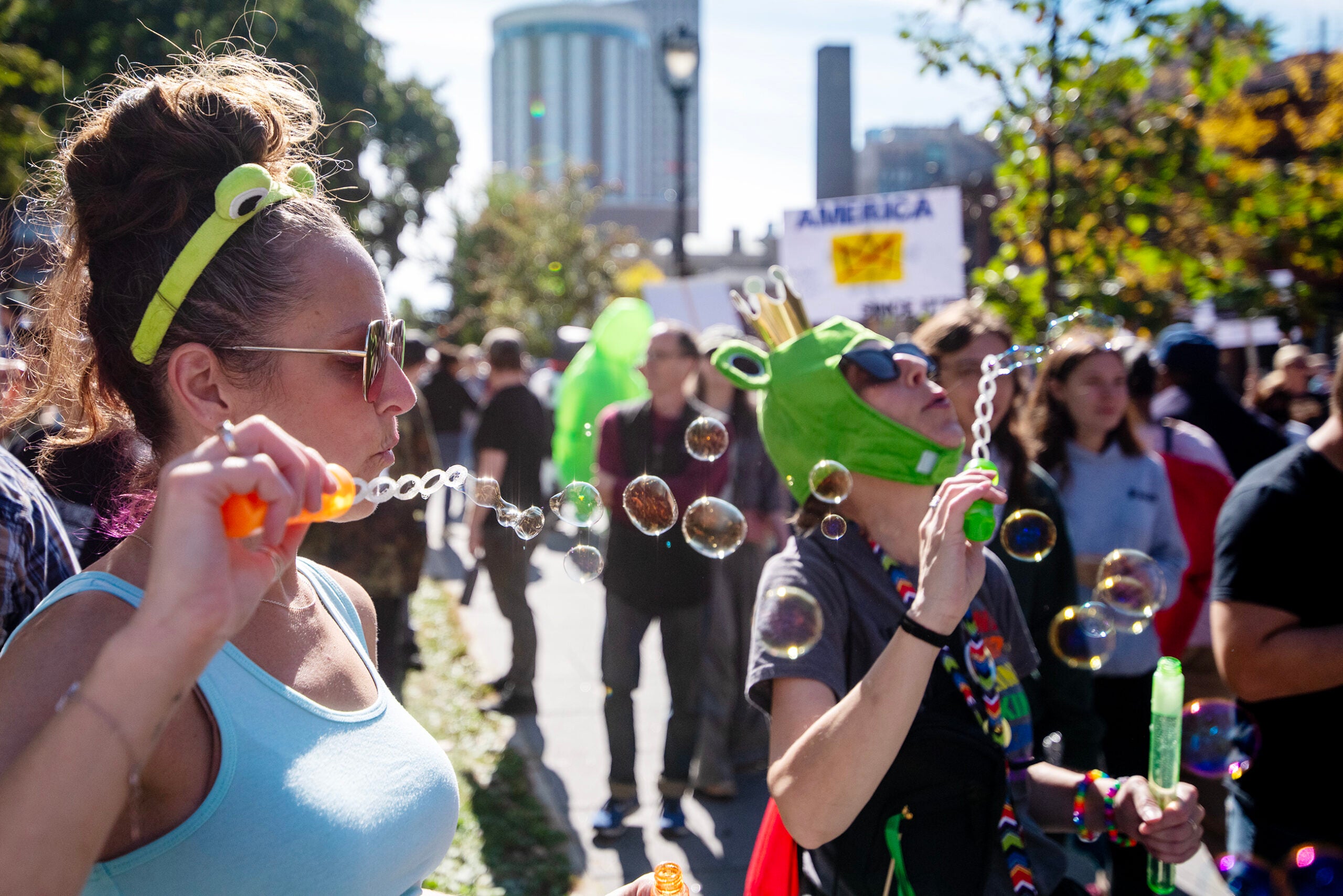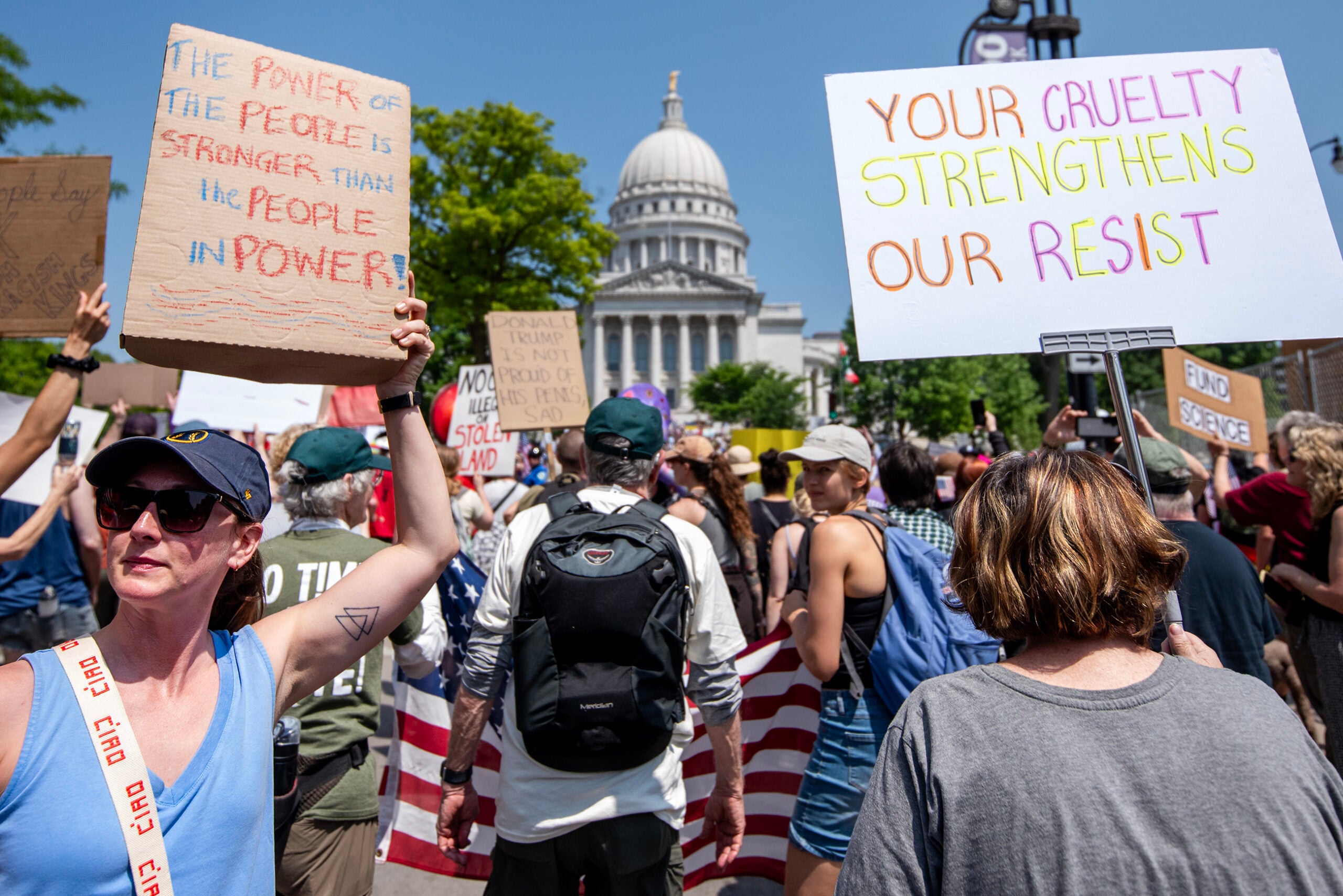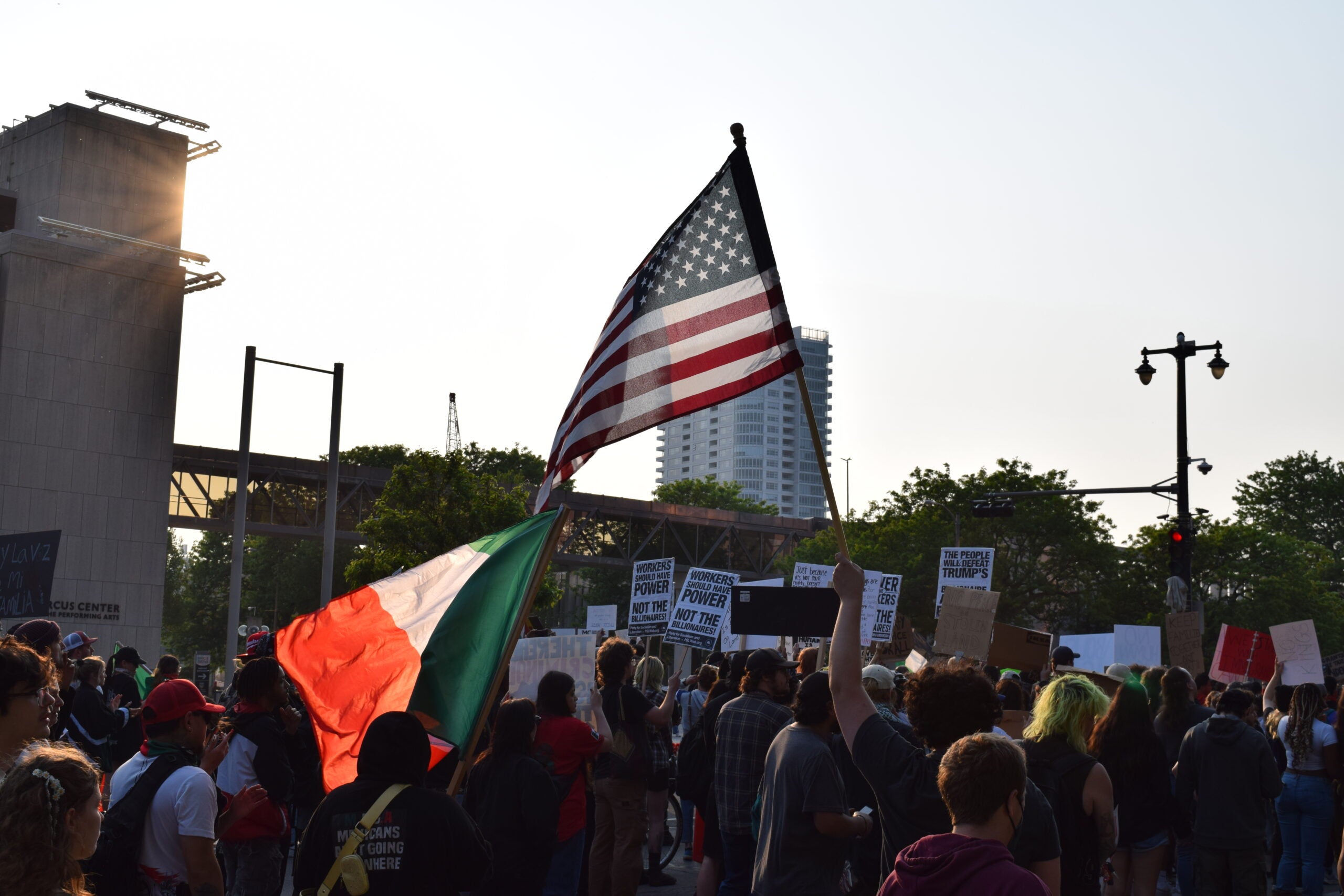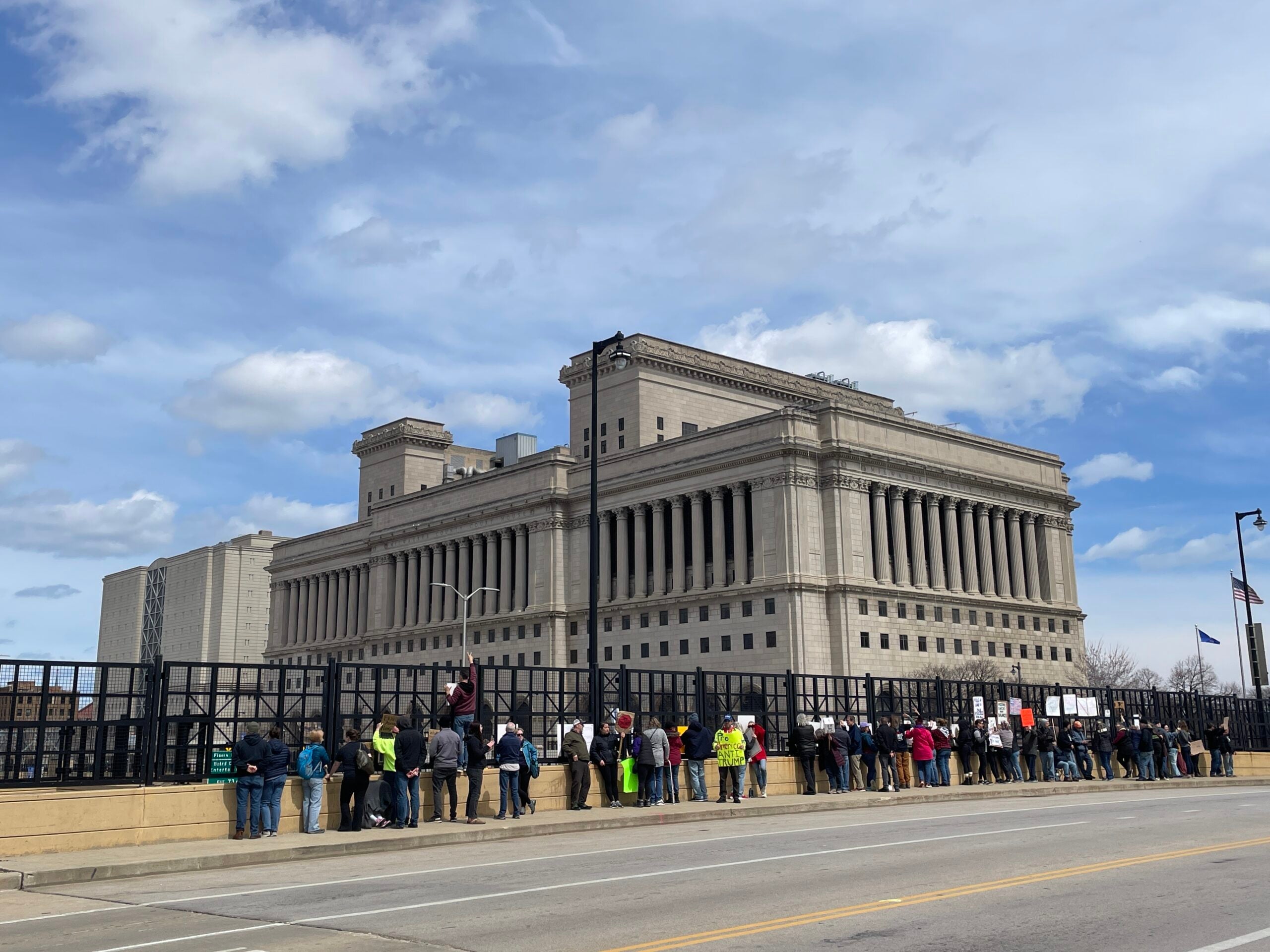A group planning to protest outside the Republican National Convention in Milwaukee is considering legal action against the city for its newly adopted rules for demonstrations during the event.
The Milwaukee Common Council passed an ordinance last week with new rules for protests during the convention. It requires people protesting within the convention’s general security zone to march along a predetermined parade route and use a city-owned speaker’s platform.
It’s still unclear where the platform will be, but Pere Marquette Park was used by the city as the protest site for the Democratic National Convention in 2020. The park is about a quarter-mile away from where the RNC is being held at Fiserv Forum.
News with a little more humanity
WPR’s “Wisconsin Today” newsletter keeps you connected to the state you love without feeling overwhelmed. No paywall. No agenda. No corporate filter.
The 2020 convention ultimately was derailed by the COVID-19 pandemic.
The ordinance says a group registering to protest can be denied its application if people involved with the group have “previously engaged in violent or destructive conduct” in connection to other protests.
The Coalition to March on the RNC 2024 and the American Civil Liberties Union of Wisconsin say those stipulations, among others, are too restrictive.
“The ordinance that the city has passed places numerous restrictions on the time, place and manner that individuals can march, rally and protest — and we think without full regard to proper limitations that protect those individuals first amendment rights,” said Ryan Cox, legal director for the ACLU of Wisconsin.
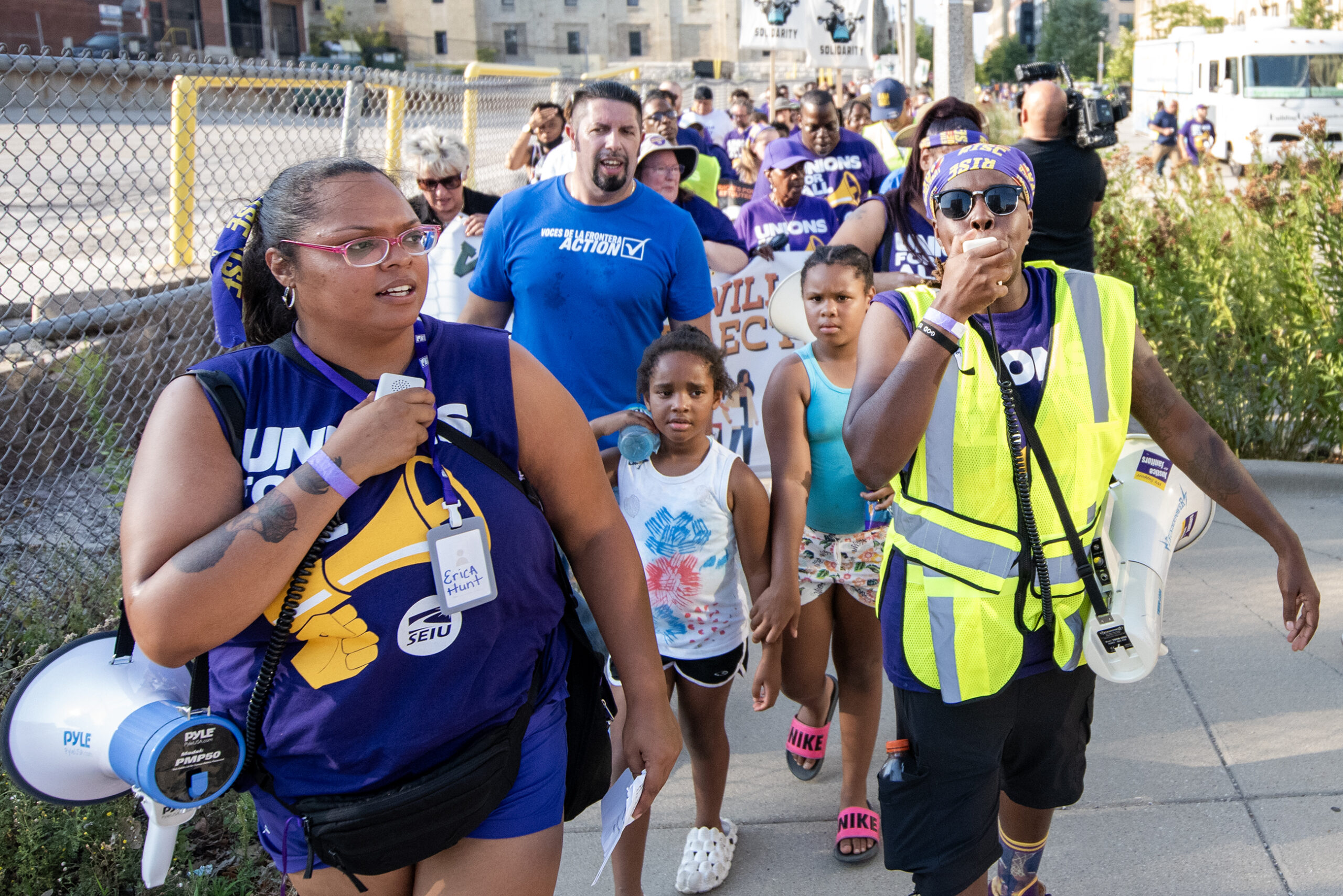
The RNC will take place July 15-18 and is expected to bring 50,000 visitors to Milwaukee. Past political conventions have drawn large crowds of protesters from around the nation.
Organizers with the Coalition to March on the RNC 2024 expect more than 1,000 people to attend a protest on the first day of the convention. Omar Flores, a leader with the group, said the demonstration will be “family friendly.” But he said Pere Marquette Park is too far away from the main happenings of the convention.
“Honestly, speaking a quarter mile away from the convention is entirely a non-starter, just completely unacceptable,” Flores said. “If that’s going to be the case, we’re not even going to march with a permit.”
The coalition is demanding the city allow them to control their own speakers, agenda and location of their protest. They’ve retained the ACLU for any possible legal action.
“The first amendment requires that individuals are able to protest, rally and march within sight and sound of the specific political event,” Cox said.
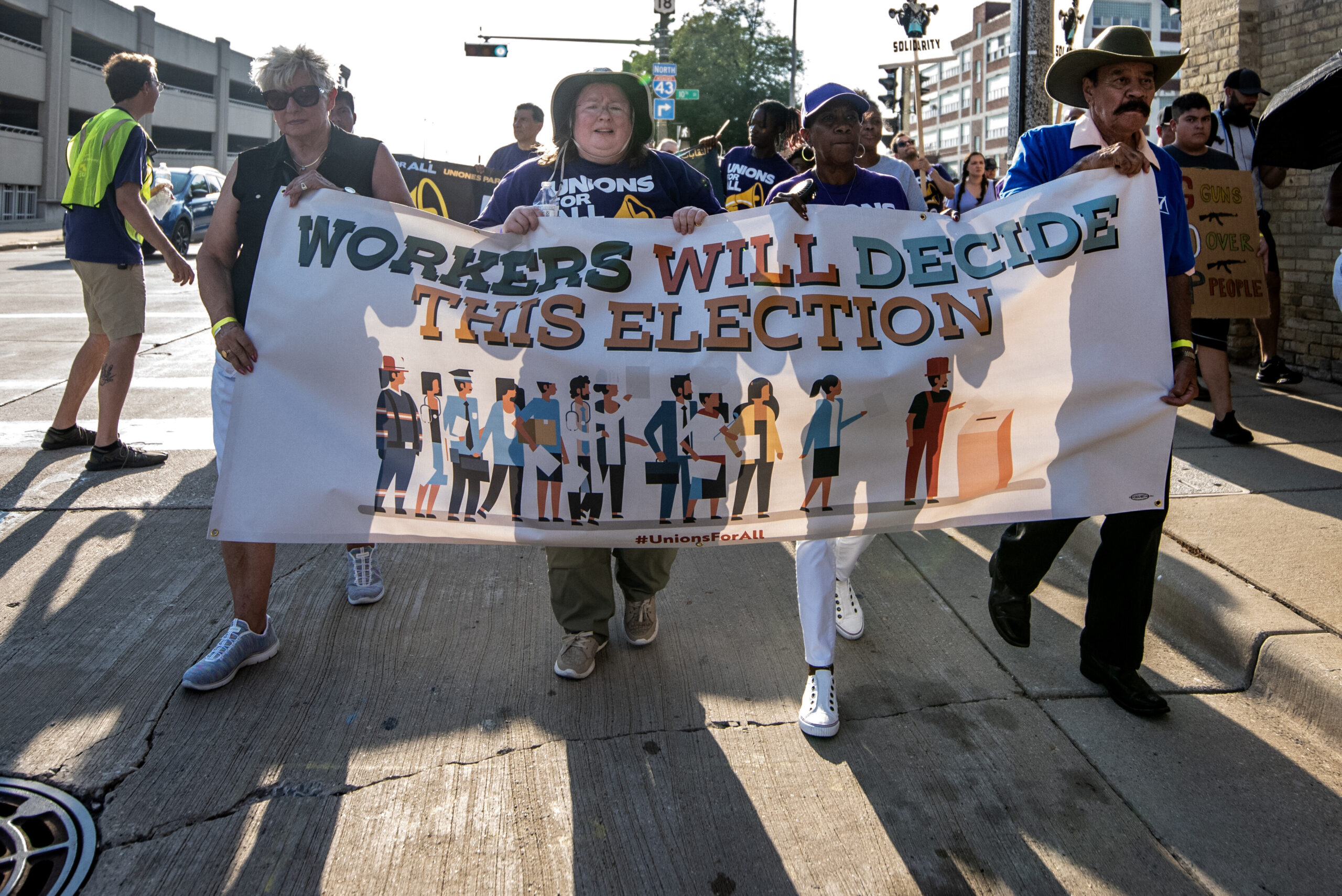
The city’s guidelines say those who wish to speak at the speaker’s platform must register with the city and must use microphones and sound amplification equipment provided by the city. People will be allowed to speak at that platform from 11 a.m. to 7 p.m. during the convention. Protest groups can also hold parades and marches inside the security perimeter from noon to 7 p.m. The parade route and site of the speaker’s platform will be announced at a later date.
Mayor Cavalier Johnson’s chief of staff Nick DeSiato said those guidelines are consistent with “best practices” from prior national conventions. DeSiato said the parade route and speaker’s platform site will be decided by county and city officials, along with the U.S. Secret Service and the Milwaukee Police Department.
“We want to be as communicative as possible once that information is available,” DeSiato said during a public works committee meeting.
Johnson, who signed the ordinance Wednesday, said he understands there will be people who want to “demonstrate their opposition to the candidate.”
“The city of Milwaukee will make sure there is a full and fair opportunity for demonstrators to have their voices heard,” Johnson said after signing the ordinance. “We take that obligation seriously.”
But Flores said he is concerned his organization will be forced to share a stage with other protest groups who may have opposing political viewpoints. He said that “increases the chances of conflict.”
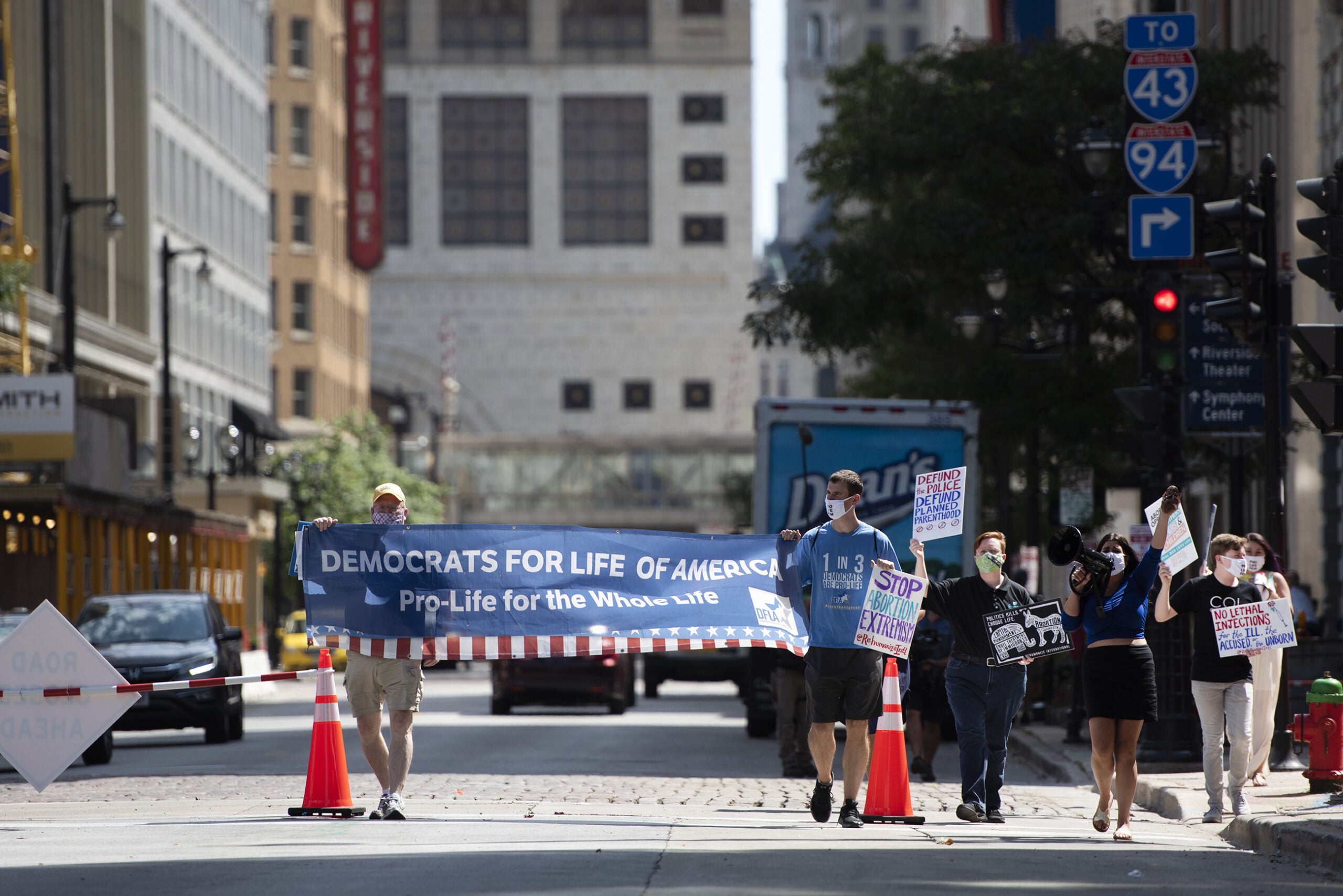
A spokesperson for Johnson said the mayor can’t comment on pending litigation. But Milwaukee Alder Bob Bauman, chair of the public works committee, said if there is litigation, then “so be it.”
“Then we’ll get clarity from the courts, if necessary,” Bauman said during a public works committee meeting.
In 2016, the ACLU sued the city of Cleveland Board of Control for protest regulations during that year’s RNC. A statement from the ACLU said a judge found that the original restrictions “placed an unconstitutional burden on speech and assembly.”
A lawsuit is underway in Chicago after three groups were denied permits to hold a pair of pro-Palestinian protest marches within blocks of the United Center, where the 2024 Democratic National Convention will be held this August.
The Coalition to March on the RNC 2024 is holding a press conference outside of Milwaukee city hall on Monday at 10:30 a.m.
“We demand the City grant us a permit with full control over the speakers, microphones, agenda and content of our rally within sight and sound of the convention,” a statement from the group said.
Wisconsin Public Radio, © Copyright 2025, Board of Regents of the University of Wisconsin System and Wisconsin Educational Communications Board.

